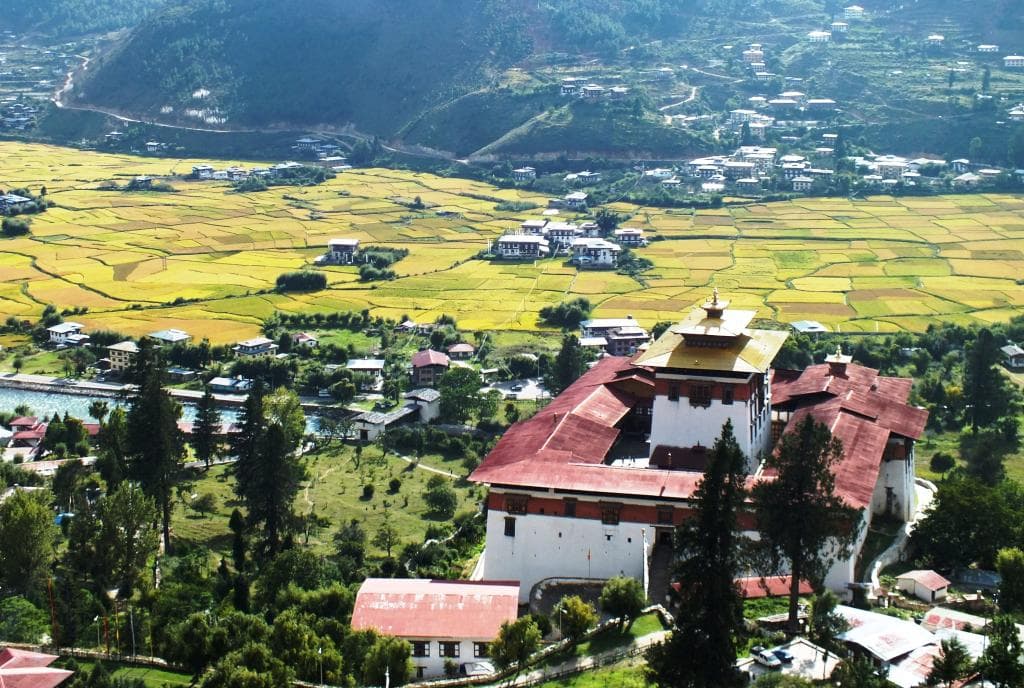
National Museum of Bhutan
Explore Bhutan's rich heritage in a 17th-century watchtower, showcasing ancient art, artifacts, and stunning valley views.
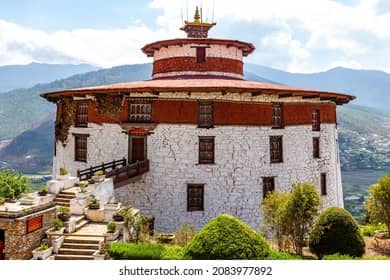
Highlights
Must-see attractions
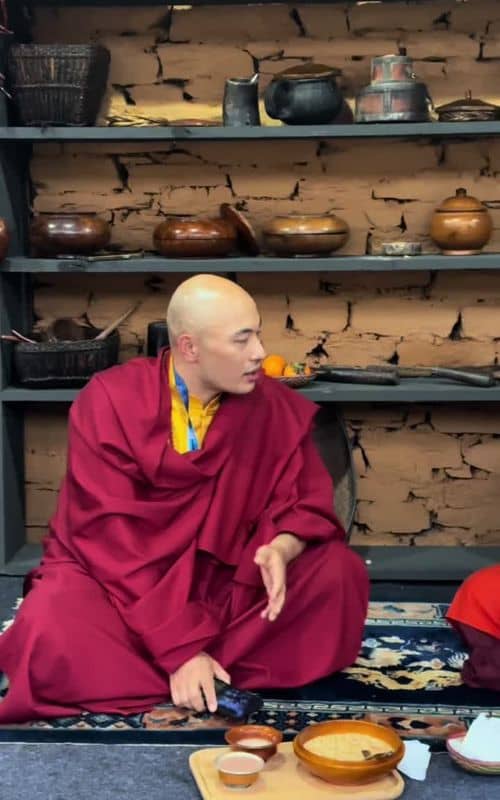
Social
From TikTok & Reddit
Best Time
Fewer crowds, more serene

National Museum of Bhutan
Best Time
Fewer crowds, more serene

Highlights
Must-see attractions
Explore Bhutan's rich heritage in a 17th-century watchtower, showcasing ancient art, artifacts, and stunning valley views.
"A must-visit cultural gem offering a fascinating glimpse into Bhutan's rich heritage, art, and traditions."
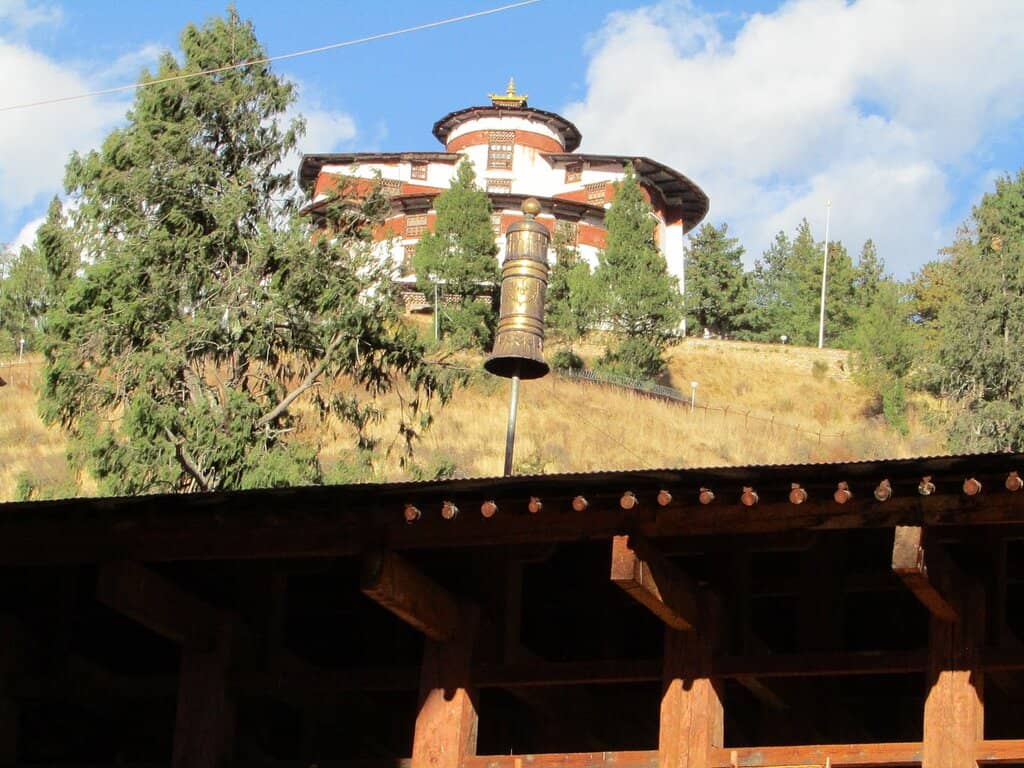
Allocate ample time
You could easily spend an afternoon exploring its seven levels and diverse exhibits. :clock1:
No photos inside!
Photography is not allowed inside the museum. Lockers are available for bags and cameras. :noentrysign:
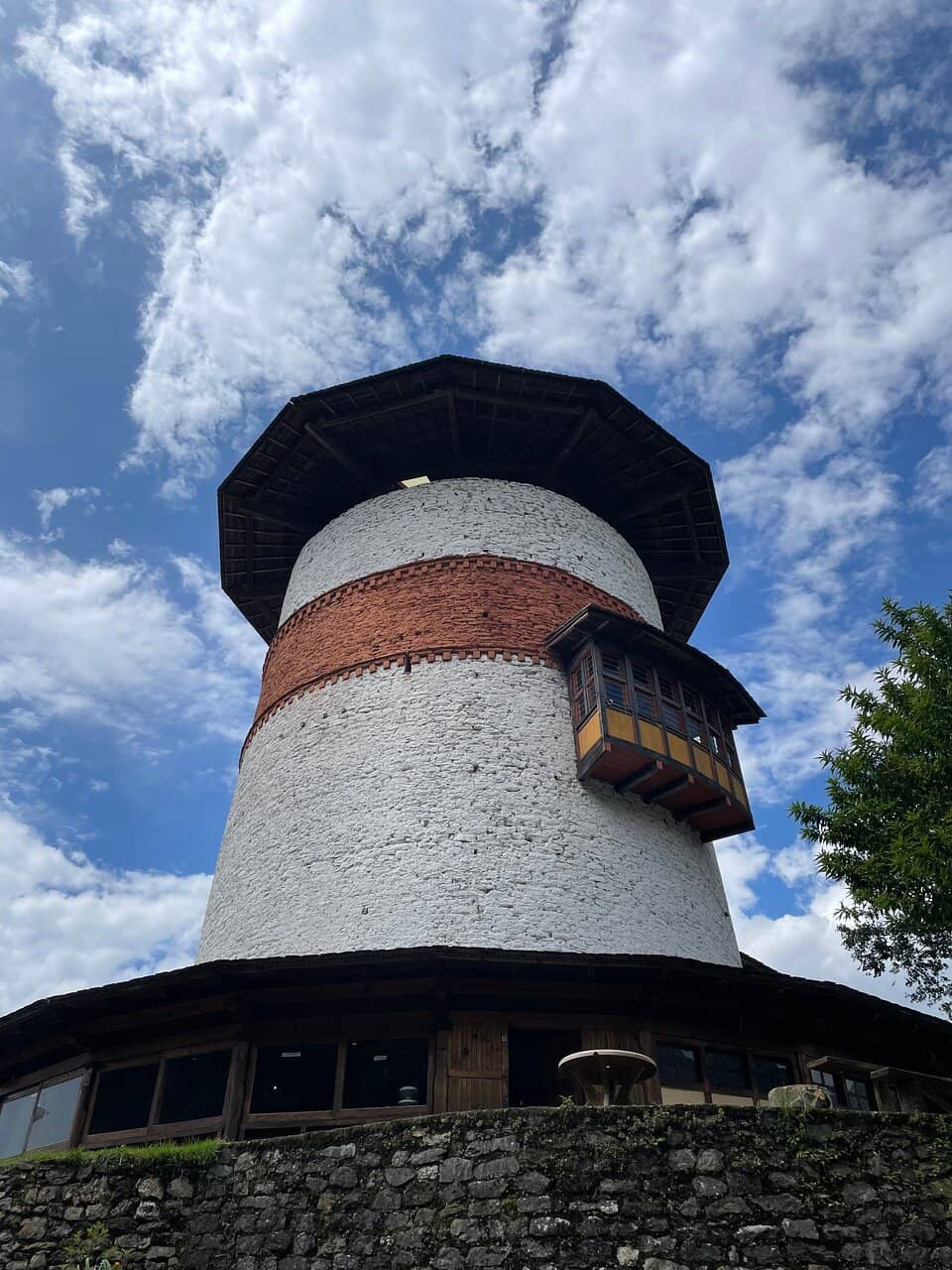
Highlights
Discover the most iconic attractions and experiences

Ta Dzong Watchtower
Paro Valley
Explore the historic 17th-century watchtower, a captivating architectural marvel housing Bhutan's cultural treasures.

Ancient Artifacts & Thangkas
Museum Exhibits
Discover over 3,000 works of art, including ancient masks, thangkas, religious relics, and traditional weapons.

Panoramic Paro Valley Views
Upper Levels
Enjoy breathtaking, sweeping views of the Paro Valley from the museum's strategic hilltop location.

Wildlife & Stamp Collections
Specific Exhibit Halls
See a surprising exhibition on Bhutan's diverse wildlife and a fascinating national stamp collection.
Plans like a pro.
Thinks like you
Planning Your Visit
Timing is Key for a Deeper Dive
Photography Rules & Bag Storage
Best Times
Insider Tips
from TikTok, Instagram & Reddit
Allocate ample time
You could easily spend an afternoon exploring its seven levels and diverse exhibits. :clock1:
No photos inside!
Photography is not allowed inside the museum. Lockers are available for bags and cameras. :noentrysign:
Stunning valley views
Don't miss the panoramic views of Paro Valley from the upper floors. :camerawithflash:
Diverse collections
Beyond Buddhism, find ancient artifacts, wildlife, and a unique stamp collection. :gem:
Tips
from all over the internet
Allocate ample time
You could easily spend an afternoon exploring its seven levels and diverse exhibits. :clock1:
No photos inside!
Photography is not allowed inside the museum. Lockers are available for bags and cameras. :noentrysign:
Stunning valley views
Don't miss the panoramic views of Paro Valley from the upper floors. :camerawithflash:
Diverse collections
Beyond Buddhism, find ancient artifacts, wildlife, and a unique stamp collection. :gem:
Wear comfy shoes
Navigating the narrow stairs and corridors can be an adventure! :athletic_shoe:
What Travellers Say
Reviews Summary
Visitors consistently praise the National Museum of Bhutan as a must-visit cultural gem, highlighting its extensive collection of artifacts and the captivating architecture of the Ta Dzong watchtower. The stunning panoramic views of the Paro Valley are another major draw. While photography is not allowed inside, the overall enriching experience makes it highly recommended for anyone interested in Bhutanese heritage.
"This museum is a must-visit! It's much bigger than it looks from the outside and incredibly interesting. You could easily spend an entire afternoon here. Inside, it’s not just about Buddhism, there are also many ancient artifacts, a stamp collection, and even a national birds exhibition. Highly recommended!"
sammi chee
"Beautiful round white building situated on a hill top. Panoramic views of surrounding valley and buildings. Inside we walked up and down along the narrow stairs and corridors. Lots of historical artifacts, pictures/photos of gods, a section on the wild life too. Just walking around itself gives me the fun as some places are very low, and dark too. Can take photos inside too"
Cheah KM
"A must-visit cultural gem in Paro!
The National Museum of Bhutan offers a fascinating glimpse into the rich heritage, art, and traditions of Bhutan. Housed in the historic Ta Dzong (a 17th-century watchtower), the architecture itself is as captivating as the exhibits inside. From ancient masks and thangkas to traditional weapons and wildlife specimens, every floor has something unique to offer.
The views from the museum overlooking Paro Valley are simply stunning. The facility is well-maintained, and lockers are available for bags and cameras since photography inside is not allowed. The layout takes you on a circular route through seven levels, each offering a different theme.
Highly recommended for history lovers, culture seekers, and anyone wanting to better understand the soul of Bhutan. You can comfortably explore it in 45 minutes to an hour."
Sidharth Agarwal
What People Like
What People Dislike
Frequently Asked Questions
🚇 🗺️ Getting There
The National Museum of Bhutan is located in Paro, housed within the historic Ta Dzong watchtower. It's about a 40-minute drive from the Paro town center or nearby sanctuaries. Taxis are readily available in Paro for a convenient ride to the museum.
While specific parking details can vary, generally, visitors can find parking facilities near the museum entrance. It's advisable to confirm with your driver or local guides upon arrival.
The museum is situated on a hilltop, so while a walk is possible, it can be quite steep. Taking a taxi or private vehicle is generally recommended for ease of access.
From Paro International Airport (PBH), you can easily hire a taxi to take you directly to the National Museum of Bhutan. The drive is scenic and takes approximately 40 minutes.
Public transport options directly to the museum are limited. Hiring a taxi or arranging transport through your accommodation or tour operator is the most common and convenient method.
🎫 🎫 Tickets & Entry
The museum typically opens around 9 AM and closes at 5 PM. It's always a good idea to check the official website or confirm locally for any seasonal changes or public holiday closures.
Admission fees are generally modest. While specific prices can change, expect a nominal fee for entry. It's best to check the official website for the most current pricing information.
Advance booking is usually not required for the National Museum of Bhutan. Tickets can typically be purchased upon arrival at the museum.
While there isn't a strict dress code, it's respectful to dress modestly when visiting cultural and religious sites in Bhutan. Avoid overly revealing clothing.
Information on specific discounts for students or seniors is not widely publicized. It's recommended to inquire at the ticket counter upon your visit for any available concessions.
🎫 🧭 Onsite Experience
The museum houses over 3,000 artifacts, including ancient masks, thangkas, religious relics, traditional weapons, and a wildlife exhibition. You can also explore a national stamp collection. The architecture of the Ta Dzong itself is a highlight.
No, photography is strictly prohibited inside the museum. Visitors are required to store their cameras and phones in lockers provided at the entrance. :noentrysign:
Most visitors find that 45 minutes to an hour is sufficient to explore the museum. However, if you're deeply interested in history and artifacts, you could easily spend 1-2 hours. :clock1:
While official guided tours might not always be readily available, the staff are often knowledgeable and can provide insights. You can also hire a local guide in Paro who can accompany you.
The museum's location on a hilltop offers stunning panoramic views of the Paro Valley and surrounding landscape. It's a great spot for photos (from the exterior). :camerawithflash:
🍽️ 🍽️ Food & Dining
There are typically no dining facilities directly within the National Museum of Bhutan. Visitors are advised to eat before or after their visit.
You'll find various dining options in Paro town, which is a short drive from the museum. These range from local Bhutanese eateries to more international cuisine.
It's generally not permitted to bring food and drinks inside the museum to protect the exhibits. There are usually lockers available for your belongings.
When in Paro, try local specialties like Ema Datshi (chilies and cheese), Phaksha Paa (pork with red chilies), and Kewa Datshi (potatoes and cheese).
Yes, most restaurants in Paro offer vegetarian options, often featuring local vegetables and cheese dishes.
📸 📸 Photography
No, photography is strictly prohibited inside the museum to preserve the artifacts. You'll need to use the provided lockers for your camera and phone. :noentrysign:
The exterior of the Ta Dzong watchtower and the panoramic views of the Paro Valley from the museum grounds offer excellent photography opportunities. :camerawithflash:
Drone usage is generally restricted in Bhutan, especially near cultural sites and airports. It's best to avoid flying drones without explicit permission.
The lighting is generally good throughout the day, with softer light in the early morning and late afternoon. Midday can be bright, so consider the time of day for your shots.
It's always polite to ask for permission before photographing individuals. Be mindful of privacy and cultural sensitivities.
For Different Travelers
Tailored advice for your travel style
👨👩👧 Families with Kids
Keep in mind that navigating the narrow stairs might require extra supervision for very young children. Consider focusing on the more visually striking exhibits like the masks and the wildlife section. The stunning views of the Paro Valley from the exterior also provide a great opportunity for family photos and a moment to appreciate the landscape.
🏛️ History & Culture Enthusiasts
The museum's layout, spread across seven levels within the fortress, provides a chronological and thematic exploration of Bhutanese history. The panoramic views from the upper floors also offer a historical perspective on the strategic importance of the location. Allow ample time to fully appreciate the depth and breadth of the collections.
📸 Photography Buffs (Exterior Focus)
Experiment with different angles to capture the fortress's unique circular design and its integration with the natural environment. The changing light throughout the day can offer varied moods for your photographs. Remember to respect the site and any local regulations regarding photography.
Deep Dives
In-depth insights and expert knowledge
The Ta Dzong: A Fortress Turned Museum
Visitors often remark on the building's imposing presence and the fascinating journey through its seven levels. The interior design, with its narrow stairs and corridors, adds to the sense of exploring a historical stronghold. This unique setting provides a tangible connection to Bhutan's past, allowing visitors to step back in time as they ascend through the museum's various galleries.
A Glimpse into Bhutanese Heritage
Beyond the religious and historical artifacts, the museum also offers insights into Bhutan's natural world with a wildlife exhibition showcasing local fauna. A particularly unique display is the national stamp collection, highlighting Bhutan's philatelic history and artistry. The exhibits are thoughtfully arranged, providing a comprehensive overview of Bhutanese traditions, art, and daily life, making it an essential stop for understanding the 'Land of the Thunder Dragon'.
Capturing the Scenery: Views and Photography
The museum's hilltop perch provides panoramic views that are a highlight for many visitors. From these vantage points, you can capture the sprawling beauty of the Paro Valley, dotted with traditional Bhutanese farmhouses and lush greenery. The best times for photography are often during the softer light of early morning or late afternoon, though the midday sun can also offer dramatic contrasts. Remember to be respectful of the surroundings and any local customs when taking photos.

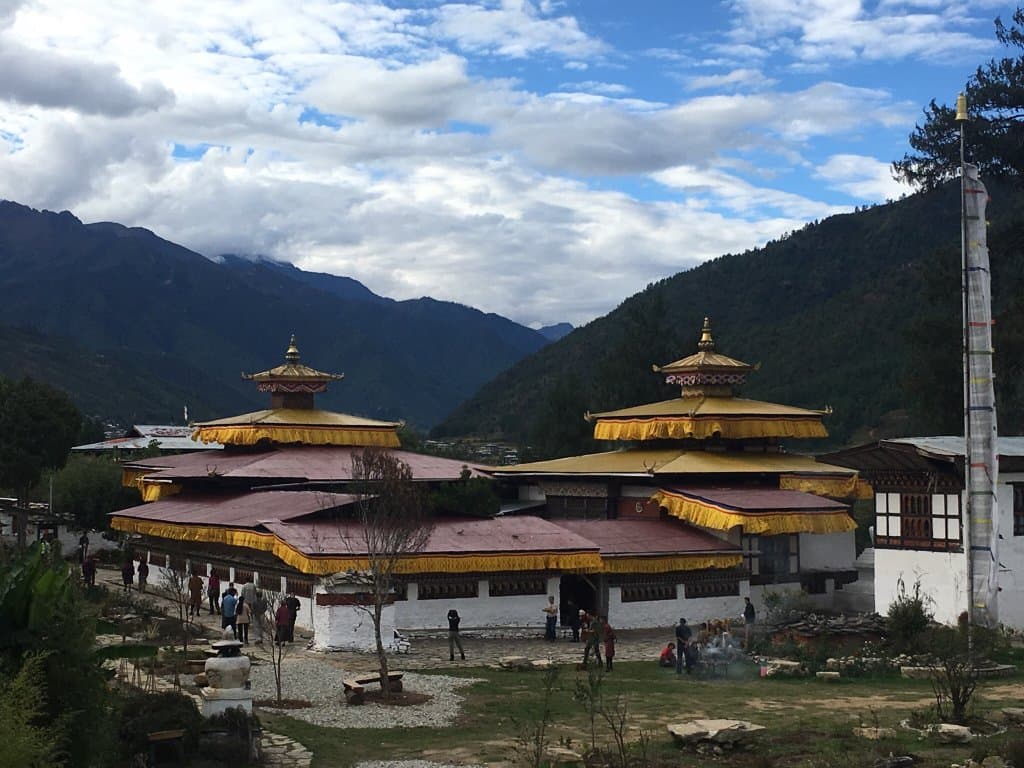

Social
from TikTok, Instagram & Reddit